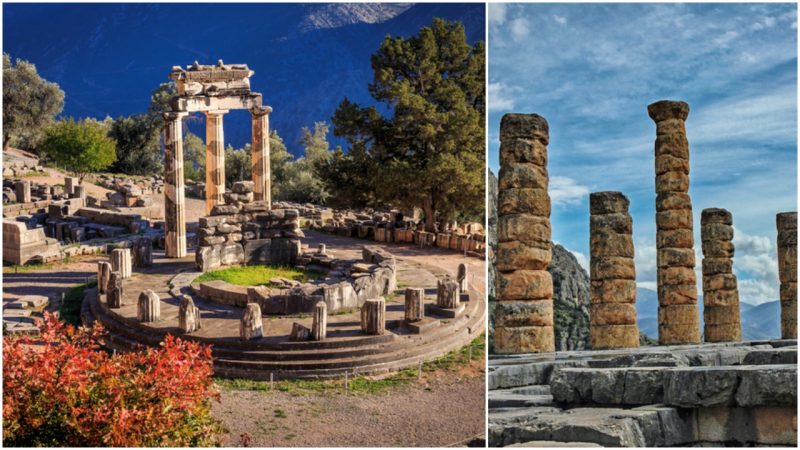Situated on Mount Parnassus, the ancient city of Delphi was the most important religious center in ancient Greece. According to the myth, in the search for the center of the world, Zeus released one eagle from the west and another from the east. The place where they would cross paths would indicate the heart of the world. They met at Delphi and to commemorate the event, a stone known as omphalos (navel) was placed on the spot.
The story of how the city became home to the most significant sanctuary begins with Gaia, the goddess of Earth. In Delphi, she had placed her priestess guarded by her son, the serpent Python. Then Apollo came, killed Python, and brought his own priestess to the site. People were thrilled to find out the dangerous creature was gone, and in honor of their rescuer, they built a temple and placed the omphalos inside the building.
From then on, people from everywhere would come to Delphi to hear the prophecies of Pythia, the most famous oracle from the ancient world. At this point, Delphi was an independent city-state and tended not to get involved in foreign politics. With Pythia as a resident, it was inevitable.
Many powerful leaders came to see the Oracle to hear what the future held for them. However, they would not always be given clear answers. For instance, before attacking Persia, King Croesus of Lydia came to Delphi to hear if the gods were on his side. The Oracle’s response was: “If you do, you will destroy a great empire.” And so, King Croesus departed, believing his empire would destroy the Persians; however, it was the other way around.
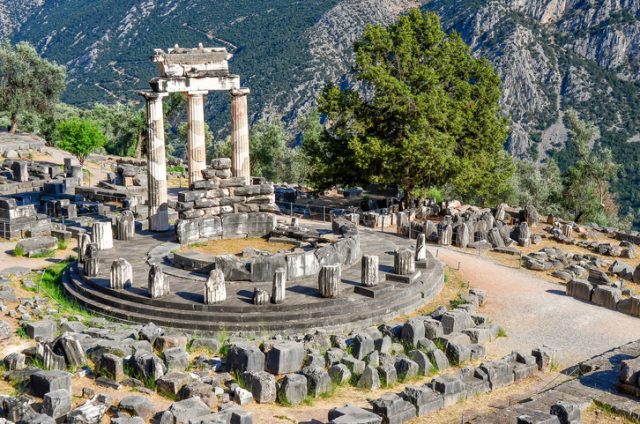
During the winter, the Oracle of Delphi could not be asked for any kind of prophecy, because from November to February, the god Apollo was not to be found there, he lived in another land of giants. However, Alexander the Great decided to invade Persia in November and came to Delphi to see the Oracle before departing. After politely asking to speak to her several times, he was always firmly denied. His army of 40,000 warriors refused to follow him without first consulting the Oracle.
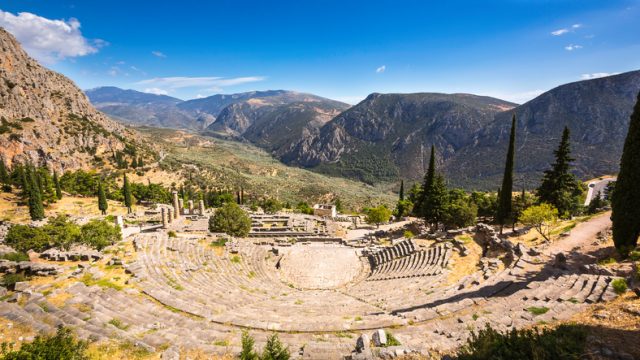
And so, by using force, he entered the temple and dragged the Oracle from her chambers to the holy altar, demanding an answer. Once Alexander heard her say,”You are invincible, my son,” he let go of the Oracle saying: “Now I have my answer.” Today, this theory of Apollo speaking through the Oracle is very unconvincing and historians believe during the sessions, the priestess was in a trancelike state, due to the ethylene gas, the presence of which was discovered in modern excavations of the site.
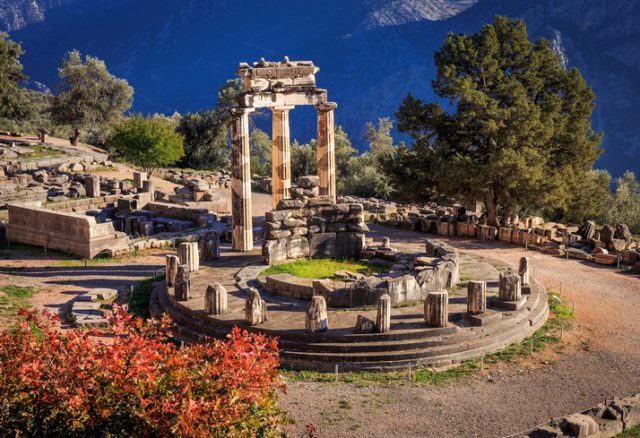
Although Delphi is mostly known as the home of the Oracle, the city itself had much to offer. Every four years, in honor of Apollo, the Pythian Games were held, where, in addition to the athletic disciplines, the contestants sang hymns to Apollo. The city also had an amphitheater, gymnasium, and other sanctuaries dedicated to gods and goddesses such as Artemis, Dionysus, and Poseidon.
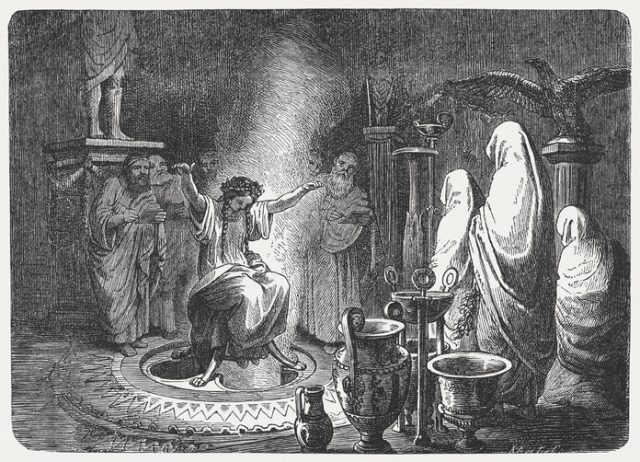
When Delphi was conquered by the Romans in the 2nd century BC, it was often plundered, but still remained an important cultural city, especially appreciated by Emperor Hadrian. Its inhabitants were slowly leaving the city when Christianity replaced the pagan beliefs. What had once been the most sacred city was now neglected, and in 385 CE, Emperor Theodosius closed the site.
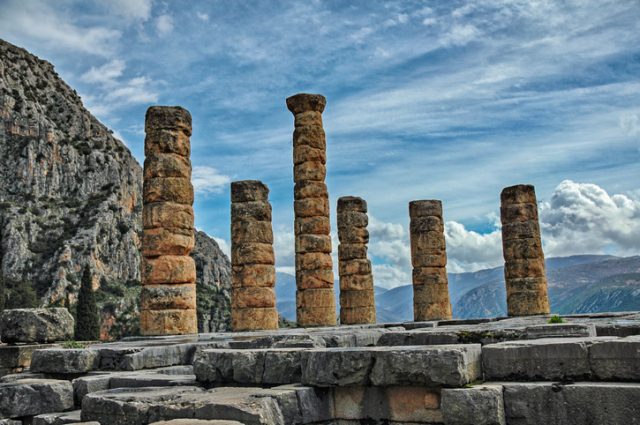
In the Middle Ages, the site was once again populated; however, now it was known as the village of Kastrí. Then, in the 1880s, due to archeological excavations, the village was relocated and the remains of the city were redesignated their original name. The artifacts discovered on the site, some of them dating to 1600 BC, are on display at the Delphi Archeological Museum.
During the World War II, the Nazis visited the site and did their own excavation; however, what they were looking for and whether they found it remains a mystery. Due to its cultural and historical importance, this ancient city was designated a UNESCO World Heritage Site.
